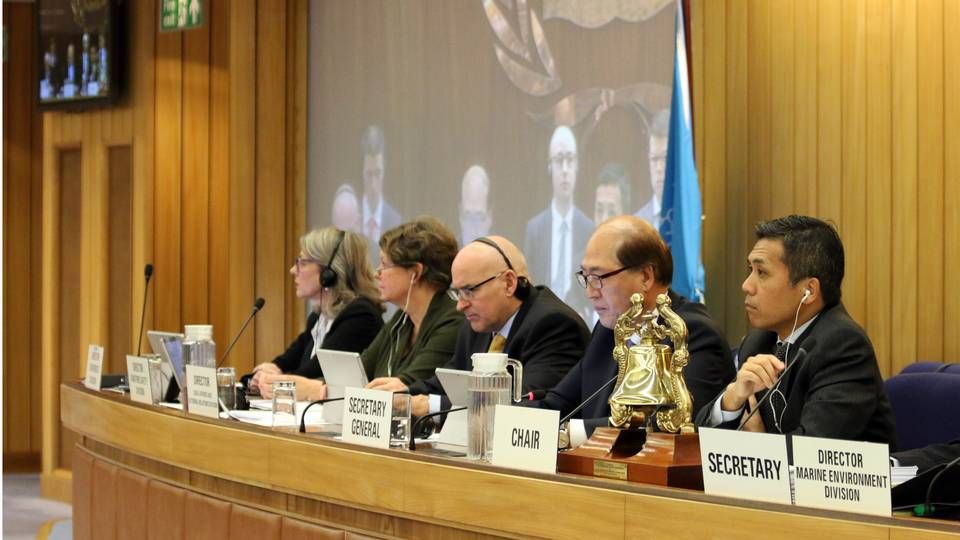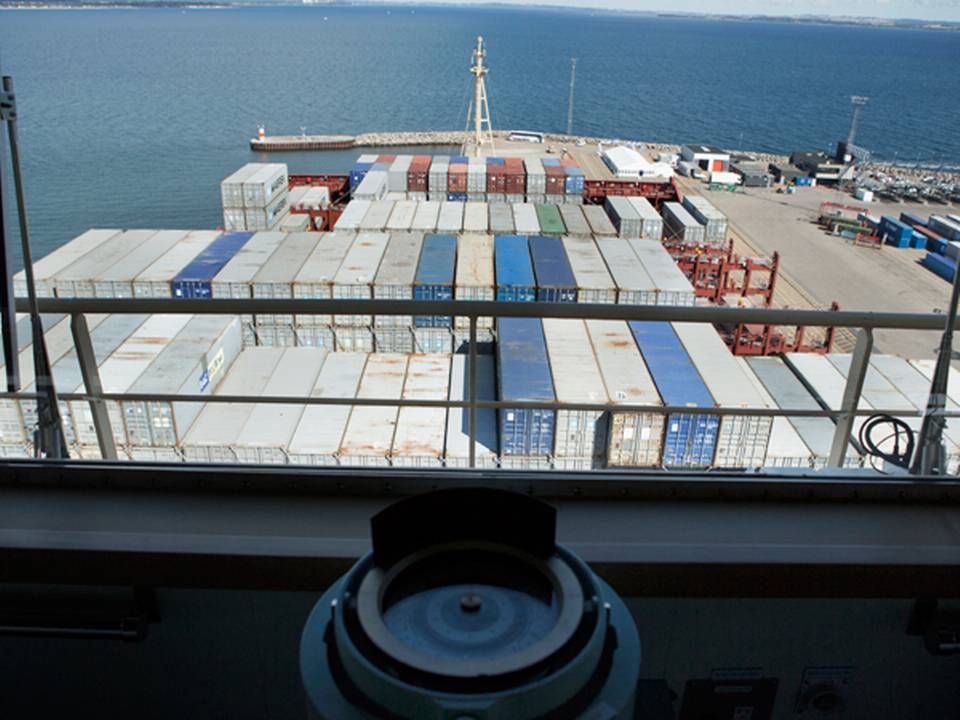The windows to shipping's power center will not be polished before next year

A journalist tweeted for hours on the first day about the developments taking place at the latest meeting of the IMO's Marine Environment Protection Committee, MEPC, where important matters such as sulfur regulations and CEO featured on the agenda.
The online updates, and thus the flow of information about which countries were saying what, quickly stopped, as it was made clear to the 171 member states and other participants that it is not permitted to share information from the meetings with the rest of the world through social media. Doing so could lead to expulsion from the meetings.
This is not the first time that Twitter has been a point of contention at the IMO. For instance, an anonymous profile on Twitter has in the past provided participants at the meeting as well as the rest of the world with updates from meetings.
The two Twitter stories show how tightly the flow of communications from the IMO is controlled, and the organization has on several occasions been criticized for completely shutting down communication about discussions taking place at the UN body.
Kept in the dark
Most recently ahead of an IMO Council meeting last week, when NGO Transparency International criticized the organization for keeping processes in the dark. The NGO also drew parallels between keeping things in the dark and the chances of it becoming very opaque how the various countries approach shipping's greenhouse gas emissions, which is likely the biggest political issue in the world right now.
One issue on the agenda was transparency at the IMO, and according to ShippingWatch's source, the Council did not make much progress here.
The discussion did started, and it was then handed over to a work group, but it did not move further with concrete proposals. Rather, the discussion about transparency was pushed back to the next Council meeting, set for the summer 2019.
At Transparency International, Global Coordinator Brice Böhmer acknowledges that there was at last week's meeting generally broad support for changing the public's access to the IMO. But the NGO finds it disappointing that the Council did not make more progress. According to Böhmer, there are several areas that one could address already at this point.
Even though media and civil society can access some IMO meetings, most of them are held behind closed doors. But the limited access is in itself far too limited, he says.
"A media cannot report on what a country says. So if you are in the room and hear Panama comment on something, you cannot write it. Which is crazy," he tells ShippingWatch, pointing to an example such as the UN Security Council, where there is free access to information, documents, and so on.
"If there is one body where you think that some issues need to be not in the open space, that should be one of them, but the IMO is really far behind the other UN bodies and other international organizations."
Unlike other UN bodies, there are unique restrictions what members of the media and participants can and cannot do during the meetings at IMO's headquarters in London. As mentioned, it is not alleged to name countries and their proposals, and not least their response to other proposals, without getting their permission first.
And it is also not permitted to reference a development to a proposal if it has not yet been decided whether it will be adopted or not. And this makes it difficult for media to cover the IMO cases, as it will usually also require permission from countries behind the various proposals if a media wants to report where the proposal comes from.
Böhmer acknowledges that some things cannot be changed overnight and needs to be discussed more. Some proposals need to be written into the IMO convention, and this takes several years.
"But there are some very quick things to fix, which are really easy and can be done quite easily. Especially when it comes to access to information. At the moment it is very difficult to find the documents. Before the meetings the documents are not available, and how can you engage as civil society if you don't have access to the documents beforehand?" he asks.
"IMO has been opaque from the beginning and hasn't been reforming enough or at all. There has been positive developments like the initial strategy approval for greenhouse gas emissions, but we are still concerned that even with that decision, the IMO continues to be opaque and does not allow journalists to report or civil society to participate freely."
Video transmissions of meeting in play
ShippingWatch's sources point to a concrete proposal from the Council meeting at which it was proposed to do video transmissions from the IMO meetings, which everyone could in principle access.
A proposal that the organization will continue to work on, as it would be too expensive for the IMO to produce. And it is also a proposal that, if introduced, could resolve a big part of the issues related to public access, as it would also solve the discussion of whether journalists can quote from the meetings if they are made publicly available.
Another concrete proposal concerned access to various IMO documents. Some of the documents require that one pays a fee to gain access to them, and this fee goes to the IMO. If the fee is removed of al the information is made publicly available free of charge, this could also have a financial impact on the IMO, explain ShippingWatch's sources.
"The financial issues are real. More time is needed to discuss them, it's not a matter of just leaving the transparency discussions to wither away," one source tells ShippingWatch.
Denmark is a member of the IMO Council and participated at the meeting last week.
"The meeting this week showed significant interest in reforms among IMO member states, and Denmark finds this very positive. In its current form, the IMO works well, as we've see with the adoption of the first strategy for shipping's reductions of greenhouse gas emissions. However, we also need to always ensure that the organization, as much as possible, complies with current norms in terms of work approach, representation and transparency," says Andreas Nordseth, Director General of the Danish Maritime Authority, in a statement.
English Edit: Daniel Logan Berg-Munch
NGO worried that major nations could shut down IMO transparency process
Harsh criticism: IMO is too slow on key climate agenda
Lightning fast negotiation of controversial sulfur proposal launches new talks at the IMO
Related articles
Harsh criticism: IMO is too slow on key climate agenda
For subscribers


















